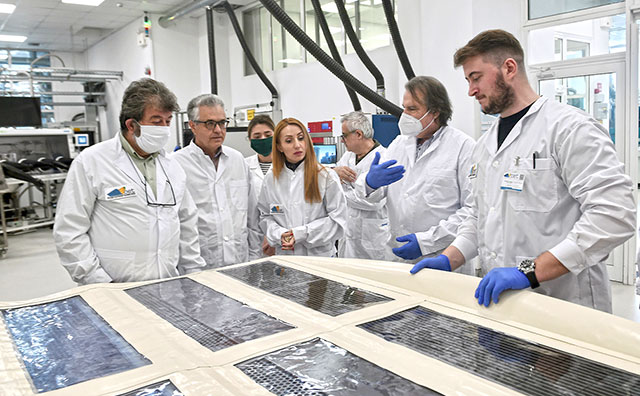From pv magazine Global
A European consortium will build an automated factory for large-scale printed organic solar products for use in integrated building-integrated photovoltaics (BIPV) and agrivoltaics in Thessaloniki, northern Greece.
The Flex2Energy project, officially called “Automated Manufacturing Production Line for Integrated Printed Organic Photovoltaics”, received €21.2 million ($23 million) in funding from the European Horizon research initiative. It is led by the two Greek specialists in organic electronics and thin film technology, OET and the Lab for Thin Films and Nanotechnology (LTFN), and includes 14 other companies and research institutions from across Europe.
The new factory is expected to start operations at the end of 2025 and produce a million square meters of organic solar cells annually, according to local media outlet Kathimerini.
The project aims to “demonstrate that automated manufacturing of integrated photovoltaics (IPV) can deliver cost competitive products assuming both the function of energy generators and of structural elements,” according to its Horizon website description.
The consortium proposed to develop a pilot manufacturing line that can adapt to emerging novel cell and module technologies. It should also be able to print organic PV with different formats, thicknesses, and variations in the solar cell matrix, encapsulation materials, and front sheets, according to the Horizon website.
This content is protected by copyright and may not be reused. If you want to cooperate with us and would like to reuse some of our content, please contact: editors@pv-magazine.com.








By submitting this form you agree to pv magazine using your data for the purposes of publishing your comment.
Your personal data will only be disclosed or otherwise transmitted to third parties for the purposes of spam filtering or if this is necessary for technical maintenance of the website. Any other transfer to third parties will not take place unless this is justified on the basis of applicable data protection regulations or if pv magazine is legally obliged to do so.
You may revoke this consent at any time with effect for the future, in which case your personal data will be deleted immediately. Otherwise, your data will be deleted if pv magazine has processed your request or the purpose of data storage is fulfilled.
Further information on data privacy can be found in our Data Protection Policy.